
Raising chickens for beginners
It is not hard for beginners to raise chickens in their backyard. You don't have to be a full time homesteader. Raising chickens is easy if you are prepared to tend to them several times a day. Remember that even when you are on vacation, someone must look after your chickens regularly. You can’t take a day off, and must stick to a feeding routine.
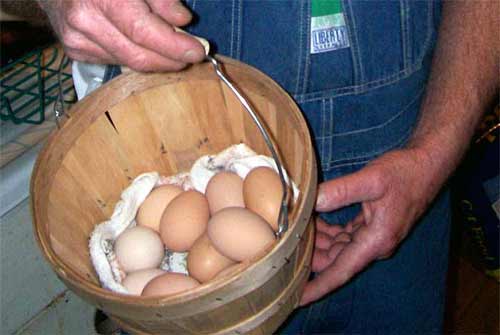
Before you buy chickens
First you have to decide what kind of chickens to raise. Do you want mostly eggs or meat? Some breeds make good laying hens. Others are meatier. Some breeds are good for both purposes. Today, I am writing about keeping laying hens for their eggs.
Before you bring chickens home, they will need a chicken coop or suitable place to live. This can be anything from a stable in the barn to a stand-alone building. Some people even have chicken coops that can be rolled from one location to another.
Chicken coops must be secure enough to keep out snakes, skunks, foxes, stray dogs, hawks, and bears. Coops should provide a warm environment in the winter and a cool environment in the summer. Your chicken coop should be dry and elevated if possible. Chickens like to roost up off the ground.
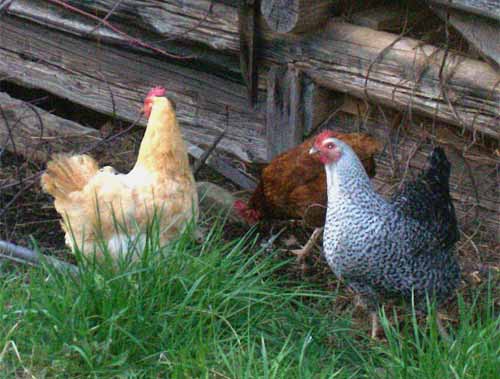
Investing in laying hens
Once you have a suitable place for your chickens to live, it is time to bring them home. The easiest way is to start with laying hens. Here in the north Georgia mountains, mature laying hens cost about twenty dollars each.
Benefits of starting with laying hens
- You get eggs in a few weeks instead of months.
- Laying hens can withstand cold weather.
- They are stronger and less susceptible to disease.
- When you buy laying hens, they can go into their coop immediately.
Mature hens in north Georgia don’t have to have a heat source, unless it is the middle of winter and they are coming from a warm environment.
Our adult chickens have always been fine, snuggled together on their roost. We have never heated our chicken coop even during sub-freezing temperatures.
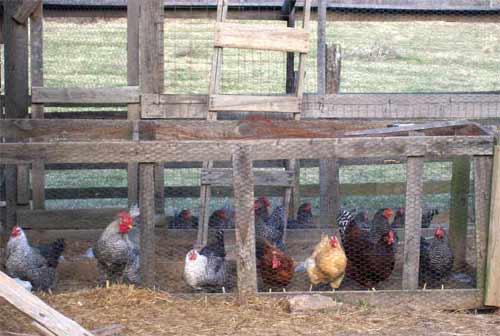
Benefits of starting with baby chicks
You might want to start with baby chicks. Common breeds can range in price from fifty cents to five dollars each. Rare breeds are more expensive.
Baby chicks are available in a wide range of breeds. Many of the common ones like Rhode Island Reds and Barred Rocks are common for a reason. They are sturdy chickens, perfect for the back yard.
Rare breeds may be worth the extra money. Lavender Morans and chickens with fancy feathers are a pleasure to keep. Do some research and look at pictures before deciding what to purchase.
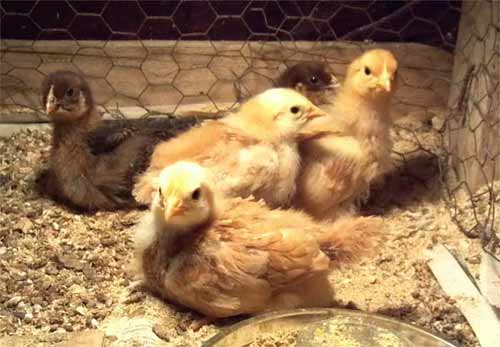
Baby chicks must be mothered!
Baby chicks seem like a bargain but remember, they will need heat until they get their adult feathers. They must be kept out of drafts, but enjoy some sunshine. Young chicks chill easily, so will need a warm area until they are at least twelve to fourteen weeks old. Farm supply stores sell heat lamps and warming pads for this purpose.
We have kept our baby chickens in the house, but this can get kind of smelly after a few weeks. The babies have to be kept warm or they won’t survive.
Baby chicks also need good protection from predators like dogs, cats, snakes, foxes, and weasels.
Waiting on them to lay eggs
Another drawback with baby chicks is the long wait to get eggs. Plan on waiting five months or longer, depending on the breed.
Also, some of your hens may turn out to be roosters! This is a chance you take with newly hatched chicks.
Another drawback of raising baby chicks is that they are susceptible to disease if all their needs are not met. Feed stores sell medicated starter feed for baby chicks that help protect from common bacterial and viral infections. Chicks need a clean environment and litter must be changed regularly.
Baby chicks are worth the trouble.
Just hatched chicks require a lot more attention than teenage and adult birds, but they can also be a joy. It is fun to watch them grow into productive and beautiful back yard chickens. Plus, you can get 4 or 5 chicks for the price of 1 older hen.
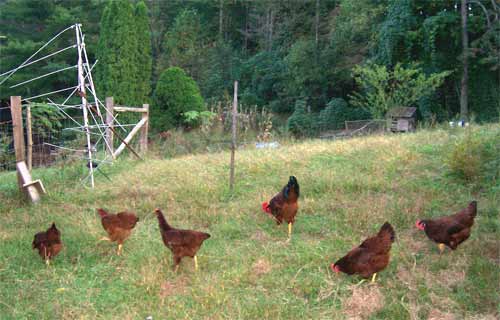
Whatever age chicken you decide to start with, I am sure they will give you years of healthy eating.
Read more about the farm stead here. Thanks for reading my blog, Jan.
Back to list of blog posts
To purchase heirloom corn seed, yellowroot, and other herbs, visit Every Green Herb (our herbal encyclopedia and online store).
Contact us by email at hometown30512@yahoo.com
Payne Mountain Farms
322 EV Farm Dr.
Blairsville, GA 30512 USA
This post contains original photos, text, and other content by Janice Boling. If stock photos are used, credits are given. Sources are also listed when applicable.
© 2010 - 2023 by Janice Boling